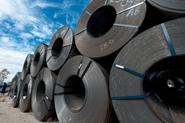Government/Policy

December 9, 2017
Section 232 Meets Resistance from Defense Department
Written by Sandy Williams
The Section 232 investigation into steel imports fails to meet approval by the Defense Department, according to Inside U.S. Trade sources.
After reviewing a draft report earlier this year, the Defense Department determined that trade restrictions proposed by Commerce Secretary Wilbur Ross would “unnecessarily vex U.S. allies.”
A source told Inside U.S. Trade that the administration has “politically boxed themselves in” because the Defense Department will not allow Section 232 to proceed without significant exclusions for U.S. allies
It is reported that remedy exclusions are being considered for Australia, Mexico, Canada, the United Kingdom, Japan and South Korea. Allies such as Japan are counting on a 2016 memorandum of understanding that waives restrictions on import of equipment produced in Japan for use in U.S. military applications.
Section 232 was delayed while Congress concentrated on tax reform. With that issue coming to a conclusion, Ross is being urged by the House Steel caucus to conclude the steel import investigation.
Sources have given conflicting reports on how much data has been collected for the investigation and under what methods. Democratic senators from Illinois sent a letter to Ross on Nov. 28 urging the conclusion of the investigation and a more transparent review process in the interim.
“It is important that our domestic stakeholders are made aware of the timing and process of your report, as well as your conclusions and recommendations, in as timely a manner as possible,” wrote Illinois Senators Tammy Duckworth and Richard Durbin. “Additionally, any recommendation by your administration should make sure that both U.S. steel manufacturers and their downstream consumers are able to create American jobs and increase domestic production as a result of your investigation.”
Ross told Sen. Bob Casey (D-PA) in September that the Section 232 report would not be issued until after tax reform legislation was passed. When Inside U.S. Trade asked Casey last week if tax reform was the official administration line on why the probe was delayed, Casey responded, “The line keeps moving.”







